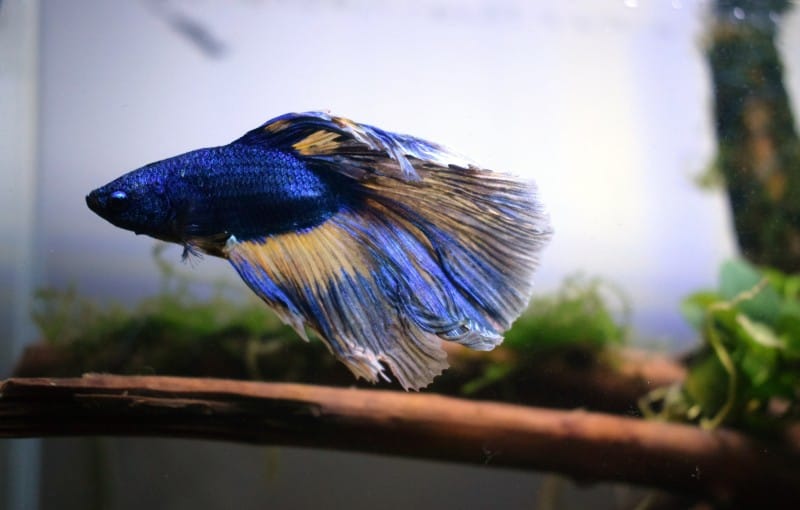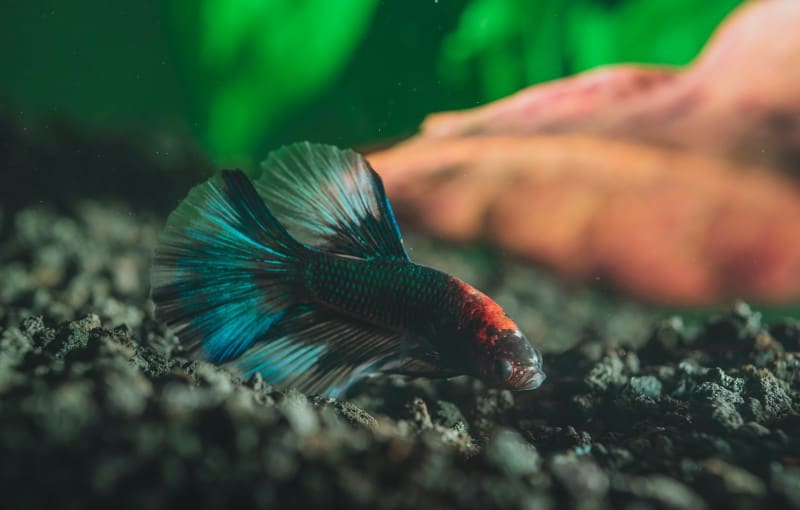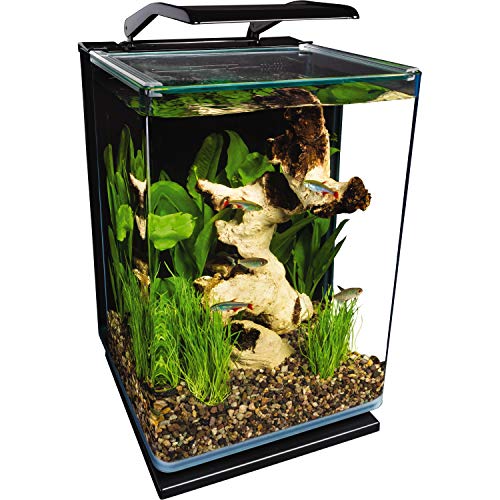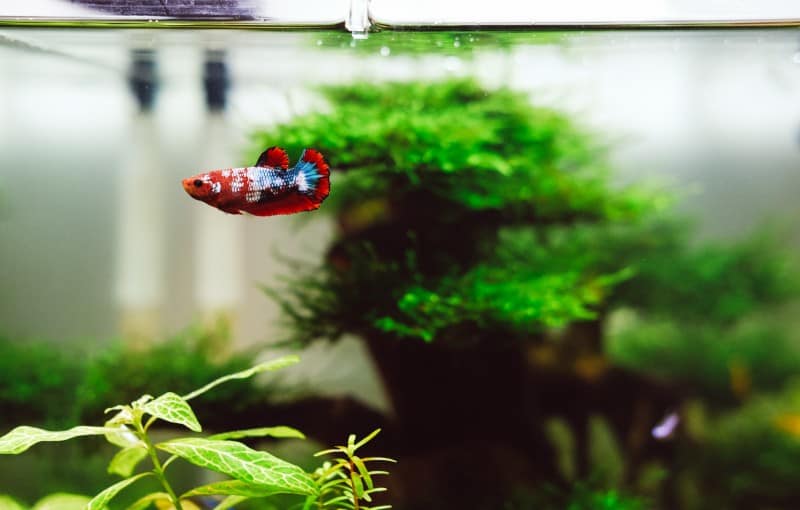Last Updated on April 12, 2022
Are you planning to have a betta as a pet? Or are you just curious to find out how to take care of one?
Fishes may not be as expressive as other pet animals but they still need affection and care from their owners nonetheless. Owning a pet is a huge responsibility but taking care of a betta is manageable even for those who are new to fish keeping.
Getting to know what your betta likes, what their traits and characteristics are and such are important things to learn when taking care of bettas. Now the question is, how should I treat and care for my betta? Are betta fishes easy to take care of?
Let’s find out and discuss below some of the basic things to know to be able to provide them with the best care possible.
Table of Contents
Getting to know your betta/siamese fighting fish

To take care of your pet fish, it is best to know what they are and where they come from first.
Bettas are also known as the Siamese Fighting Fish which were first discovered in Thailand but can be also found in other Southeast Asian countries. Their natural habitats are in rice paddies, streams, agricultural irrigation canals, and waters that are calm and shallow.
Since Thailand is a tropical country, sunlight can sometimes be intense. In Toep a good living condition and to protect themselves, bettas tend to hide in lush plants to keep them away from extreme heat.
Their food source comes from their living environment too. They usually eat insects, insect larvae, and sometimes smaller fishes too.
Betta fish are popular in the aquarium trade not only for their striking colors but also their personality. Beginners who want to join this aquarium hobby may find it daunting at first, but bettas are known to be on the low maintenance side.
Betta fish care for healthy betta
Betta fish are relatively easy to maintain. It’s all about paying attention to your pet, providing them good nutrition, and making sure that you have the right tank setup.
Taking care of their well-being and providing them with an appropriate environment will likely show healthy signs such as:
- Being active and alert
- Eating regularly
- Showing vibrant colors for males
- Aggressively reacting to outside stimulus
If your betta fish starts showing the following symptoms, you may want to check and make necessary changes from their lifestyles to their living conditions:
- Decreased or low appetite
- Fins are always kept to the sides
- Scraping their bodies on rocks
- Abdominal swelling
- Inflamed or discolored skin or fins
- Fin rot
Avoid stressing out your bettas which may be caused by overcrowding, under-stimulation, unhealthy diets, and poor living conditions. Always check up on your little friend, maintain good water condition with an adequate filtration system, enough tank size, feed your betta fish nutritious food, and regularly change the tank’s water.
Once you’ve mastered this basic knowledge and tips, you are already steps ahead of having a healthy and happy betta fish!
What do you need for a betta fish to live healthy and happy?

Let’s talk more about the essentials to guide you in providing a good living environment for your pet fish. Here are the common answers and advice to the frequent questions asked by betta fish owners.
How long do bettas live?
The average lifespan of a betta fish is about 3 to 5 years, depending on the environment they live in. If you want your betta fish to live this long, you will have to consider providing them with the best and appropriate home, food, light, and mental stimulation.
Additionally, bettas sold at pet stores are said to be around 6 months to a year old. This is because it takes time for them to develop their color which is one of the reasons why people choose to buy bettas.
What’s the best betta tank size?

Above: Marineland Portrait Glass LED aquarium Kit, 5 Gallons, Hidden Filtration. Click on the image for more information.
Keeping an appropriately sized aquarium is important for bettas. While many believe that betta fish could live in small bowls, this information is inaccurate. Aquariums, where bettas will be able to breathe from the surface of the water with little to no current, are the ideal home for them.
For starters, a 5-gallon fish tank is the minimum and recommended size if you are planning to care for one betta. This recommended size will give you a space for a heater, filter, and space for your betta to call home.
If you want a bigger betta fish tank with a larger swimming space for your betta, you can also use a 10-gallon tank as long as the water is not too deep. Since bettas are used to shallow waters and often swim only from left to right, a deep fish tank is not the ideal home for them.
What temperature is needed for a betta?
Since bettas are tropical fish and are temperature sensitive, an aquarium heater is a necessary item to have. Bettas need to swim in warm waters ranging from 74 to 82 degrees Fahrenheit which is higher than most other tropical fish.
To achieve this water temperature, you can choose an aquarium heater with 5 watts of power per gallon of water. If you have a large aquarium, a heater on each side is more recommended.
How do you make a water heater work? Just wait at least 15 minutes after filling the tank before turning the heater on. After that, place the heater close enough to the filter so that warm water will be distributed more quickly. Remember to check the water temperature from time to time and adjust the heat if necessary.
What is a filter for and do I need it?

Above: Tetra Whisper Internal Filter 3 to 10 Gallons, for Aquariums, in-Tank Filtration with Air Pump, Blacks & Grays. Click on the image for more information.
Aquarium filters help process and clean the tank’s water by sucking up fish waste and uneaten food. This should be able to process the water in your betta’s tank three to five times an hour, depending on the product you have.
Wastes from the tank such as fish pee, poop, dying plants, and food waste release ammonia which is a toxic and harmful chemical to fishes.
Additionally, there is a sponge filter that provides good biological filtration and is quite inexpensive.
It is very important to choose a good filter that will best suit your tank. Make sure that the filter you are going to use will not create a strong flow of current in the water as this will exhaust and stress out your betta.
When should I clean my betta’s tank?

Make it a habit to check the water quality of your fish tanks at least once a week. If your tank’s size is less than 2 gallons, you can do a 50% water change once a week. If you have larger aquariums, you can change 10 to 25% of the total volume of water every 2 to 4 weeks or more if needed.
Add a water conditioner to remove chlorine and detoxify tap water. This might be a hassle for a beginner but making water changes a habit will ensure that your betta lives in a stress-free environment.
What else should I include in my fish tank?
Keeping your betta splendens entertained and stimulated will help them to become healthier. Since bettas are also known to be inquisitive, you may want to consider providing your betta fish tank setup with recreational objects and activities.
Did you know that you can even teach your betta simple tricks? How cool is that? You can even decorate your tank with various things such as plants (live or fake ones) and toys.
What diet is best for my betta?
Bettas are carnivores and would enjoy certain diets consisting of pellets and frozen foods. Food pellets specifically made for bettas are a good choice if you are new to fish keeping. These are high in protein and don’t have too many fillers which could lead to digestion issues in the future.
Aside from pellets, betta fish eat live foods as well. Brine shrimp, daphnia, mosquito larvae, and bloodworms are among their favorites. Adding a varied meat-based diet can provide your pet with the necessary nutrients they need to be healthy and live a longer life.
How much food should I feed my betta?
This depends on how much your betta eats since they are not capable of sensing when they are full. They are in continuous search of food in the wild so it is up to you on feeding them the right amount of food.
One thing to remember though is to avoid overfeeding and feeding them not more than twice a day. Only give enough food that your betta can finish within 2-3 minutes. Overfeeding can quickly foul your tank water, especially small and unfiltered aquariums.
The temperament of male bettas
Betta fish wasn’t called the Siamese Fighting Fish for no reason. This reputation came from the tendency of male betta fish to attack each other on sight due to their highly territorial trait.
Male bettas have also been known to flare up and attack when they see their image in a mirror! So before you decide to house a betta with another betta, try to assess their behavior first and be extra careful in placing two aggressive bettas together.
Should I get tank mates for my betta?
Although bettas are quite peaceful living with other species, this is not at all preferable. For beginners, it is best to focus only on one betta. Once you have learned and mastered the basics of taking care of a betta fish, then you can move on to adopting new fishes.
It is good to know that the long fins of males make it a tempting target for aggressive fish. So if you are planning to include even a little schooling fish as their tank mates, especially if they are nippers, this can be a constant annoyance to your betta fish.
For this reason, it is best to keep your betta alone. But if you are eager to give them a tank mate, the most compatible options are small and gentle bottom-dweller fishes. Just remember to provide a larger tank to allow enough space for your fishes.
Final thoughts
Betta splendens as they are called too, are unique pets with different personalities. They are finicky and yet it’s popularity is huge among aquarium hobbyists, even to a beginner.
Provide them with tank decorations and give them treats from time to time. Caring for them as best as you can reward you with a betta fish with a long and happy life.
